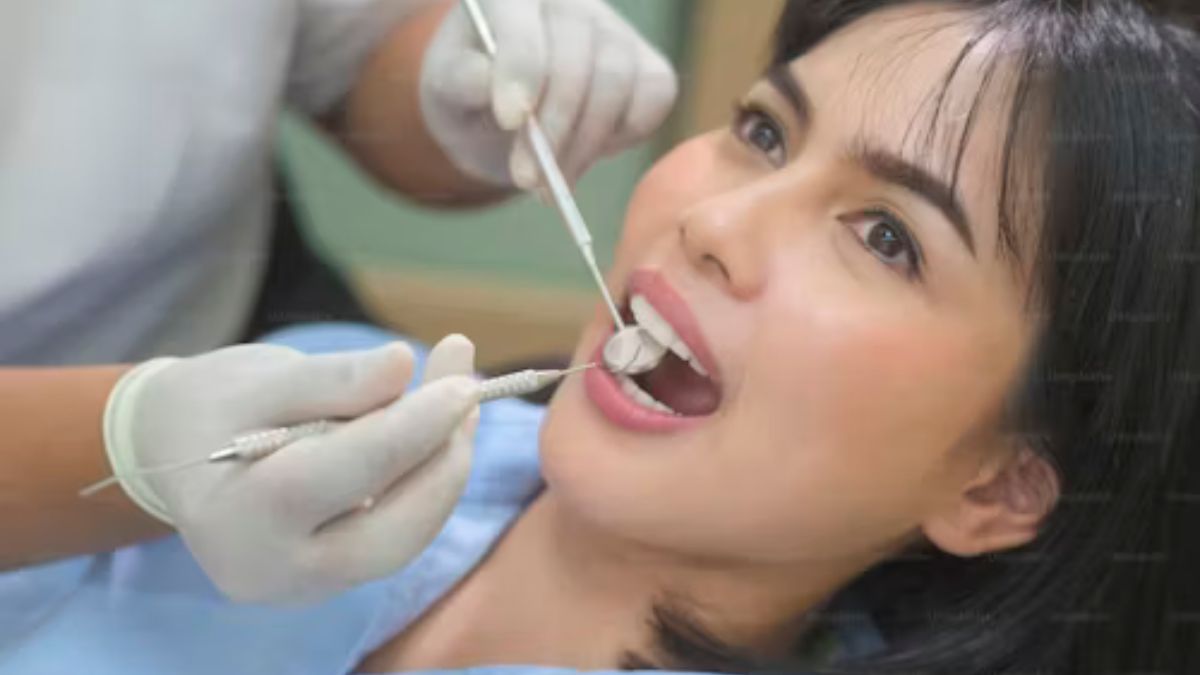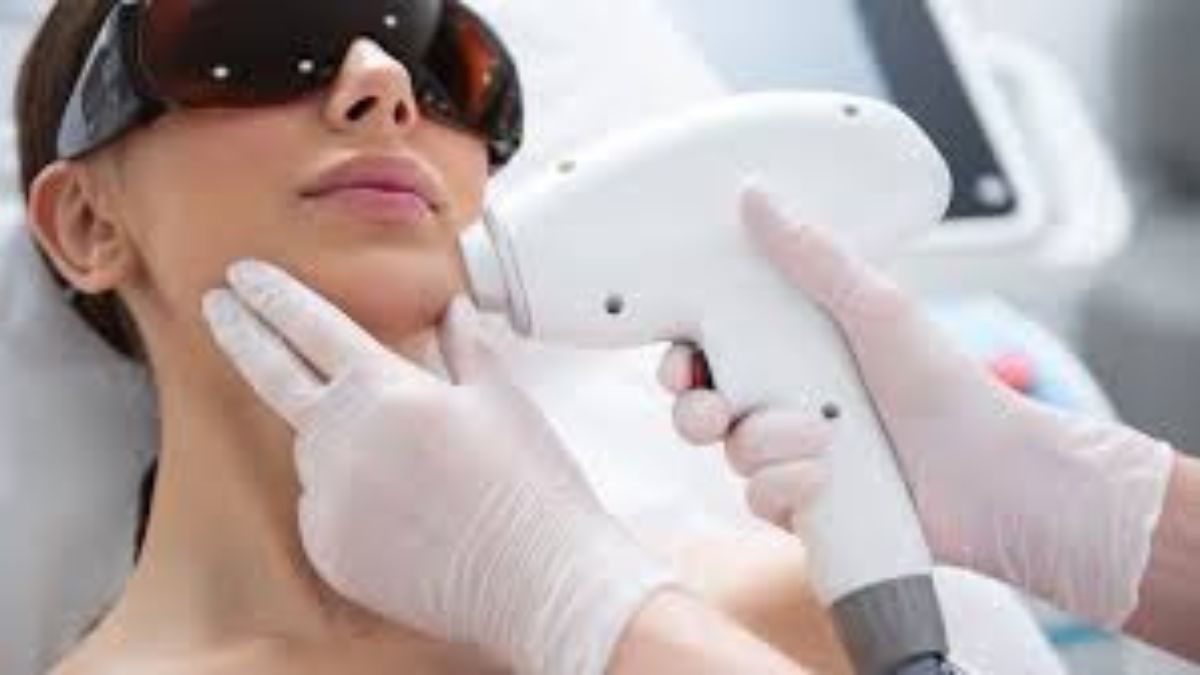HEALTH
The Secret to a Brighter Smile: Dental Cleaning Facts Everyone Should Know

People notice your smile first. It brightens a room, but daily brushing isn’t enough. Regular dental cleanings in Parkesburg are crucial for healthy teeth and gums. Professional cleanings reach areas your toothbrush can’t. Understanding their importance helps you make better decisions for oral health management.
Introduction to Dental Cleanings
Dental cleanings extend beyond the regular act of brushing teeth. They are professional services performed by dental hygienists, comprising a thorough procedure that includes scaling, polishing and often a fluoride application. These cleanings are essential for eliminating plaque and tartar accumulation which if ignored, can eventually result in cavities, foul breath and gum disease. Moreover, dental cleanings Parkesburg help in the early detection of potential oral issues, offering a proactive approach to maintaining oral health. Embracing this routine helps ensure your teeth remain strong and healthy.
How Often Should You Get a Dental Cleaning?
The frequency of dental cleanings might change depending on each person’s unique oral health status. Experts commonly recommend twice-a-year cleanings to maintain optimal oral hygiene. However, those with gum diseases or a tendency for tooth decay might require more frequent visits. Individuals with diabetes, smokers, or weakened immune responses may benefit from quarterly cleanings. Personalized dental care plans are often discussed with dentists to provide the best preventive approach tailored to your specific needs, ensuring that preventive measures are taken early on.
Common Dental Cleaning Techniques
Dental cleaning techniques have been refined to accommodate various oral health needs. Scaling is a standard procedure involving removing stubborn plaque and tartar deposits using specialized tools. This method is crucial in preventing periodontal disease. Polishing follows, offering a smooth finish to your teeth by removing surface stains, leaving them gleaming and plaque-resistant. Finally, fluoride treatments provide extra protection, fortifying your enamel against decay. Understanding these methods equips you to appreciate better the care dental professionals offer during each visit.
Benefits Beyond the Smile: Health Impacts
A healthy smile keeps more than just your dentist satisfied; it’s integral to your overall health. The American Heart Association emphasizes the link between oral health and cardiovascular diseases. Gum disease bacteria can infiltrate the circulation, causing inflammation and raising the risk of heart problems. Maintaining a schedule of routine dental examinations and cleanings will protect your teeth and improve your overall health. A committed oral health routine can thereby contribute to reducing the risks of several systemic illnesses.
Myths and Facts About Dental Cleanings
Dental cleanings are often surrounded by myths that deter people from seeking these necessary services. A common myth is the belief that frequent cleanings weaken the enamel. These procedures reinforce oral health by removing harmful plaque and deterring future decay. Some individuals fear discomfort or pain during cleanings, but advances in dental technology have made procedures more comfortable and efficient. Dispelling these myths is crucial to encouraging proactive engagement in oral hygiene routines and ensuring optimal dental health.
New Developments in Dental Hygienics
As advancements continue to evolve in dentistry, novel methods such as laser dental cleaning are gaining popularity. This technology offers a precise and often less invasive approach to traditional cleaning methods, reducing discomfort and time spent in the dental chair. According to Dental Industry News, these innovations aim to improve comfort and results, providing patients with a more personalized and practical dental care experience. Staying informed about these advancements can lead you to understand better and choose the best oral hygiene options, paving the way for more effective treatments and outcomes.
Tips for Maintaining Oral Health at Home
While professional cleanings provide an in-depth defense against oral issues, daily habits at home play an equally important role. Brushing with fluoride toothpaste at least twice daily and flossing daily are essential for maintaining a clean mouth. Utilizing an antimicrobial mouthwash can further reduce plaque and prevent gum disease. Moreover, maintaining a balanced diet and limiting sugary snacks can support oral health. Avoiding tobacco products is also essential since they may cause significant issues with oral health and discolor your teeth, making dental cleanings less effective.
Conclusion: The Path to a Healthier Smile
Following a consistent schedule of dental cleanings is foundational to lifelong oral health. You can protect your overall health and a stunning smile by taking good care of yourself and staying up to date on the newest methods and advancements. Proper dental hygiene goes beyond appearance, so incorporate these habits into your daily routine. It’s essential to living a better, healthier life.
HEALTH
How to Choose the Right Cheese for Your Recipes

Few ingredients can change a dish like cheese can. Whether it is creamy pasta sauces, crisp pizzas, sandwiches, or salads, cheese adds a touch of texture, flavor, and depth that makes even the most basic foods seem fancy.
However, with hundreds of varieties of cheeses on the market, each with its own distinctive tastes, melting behaviors, and applications, selecting the right cheese can be overwhelming.
Whether you’re a home cook or a would-be chef, knowing how to match your recipes with cheese can be the key. Here’s how to always pick the best cheese.
Understanding Cheese Basics
It is helpful to understand how each type of cheese is differentiated. Cheese can be classified by texture, taste, and milk base to aid in making the appropriate selection.
Texture
Light creamy cheeses such as Brie, Camembert, and Ricotta are soft and mild and ideal for spreading or melting away. Semi-soft cheeses like Mozzarella and Fontina are smooth to melt, making them perfect for pizza or lasagna. Hard cheeses, such as Parmesan, Pecorino Romano, and Grana Padano, have high flavors and are grateable.
Flavor profile
Cheeses are mild, milky, sharp, and nutty. Mellow cheeses blend well in cuisine, whereas aged or strong ones add flavor and zest.
Milk source
Cow milk is creamy and sweet, goat milk has a tangy freshness, and sheep milk has a rich, earthy flavor.
Integrating Cheese into Cooking
Cheese reacts differently to heat. Knowing its reaction will assist you in choosing the most suitable one for your dish.
For melting
When you want to melt cheese, say, in grilled cheese, pasta, or fondue, you will require a smooth, melting cheese. Best choices? Mozzarella, Gruyere, Fontina, Monterey Jack, or Provolone. Use two cheeses to add richness–Mozzarella to stretch and Cheddar to add flavor, e.g.
For grating and garnishing
When grated, hard cheeses are very umami and crunchy.
- Best choices? Parmesan, Asiago, or Manchego.
- Best use? Top pasta, risotto, or salads with sprinkles to add a savory taste.
For baking
When preparing casseroles, quiches, or baked pasta, use cheeses that do not get greasy.
- Best choices? Gruyere, Swiss, or mild Cheddar.
- Do not use only mozzarella; it may cause too much moisture in baking.
For spreading and dips
Soft cheeses add creamy texture and subtle richness to spreads or dips.
- Best choices? Cream cheese, Ricotta, or Mascarpone.
- Best use? Add herbs or garlic to make dips or sandwich fillings packed with flavor.
Combining the Cheese with Flavor Profiles
The other ingredients are not overwhelmed by cheese; they do not play the second fiddle.
With savory dishes
Intense flavors like meat, garlic, and tomato-based sauce pair well with aged cheeses that can handle the challenge. Cheddar, Asiago, Parmesan, or Gruyere in burgers, pasta, or casserols.
Gusts with sweet or tender tastes
Mild cheeses are an advantage to lighter dishes like fruit salads, pastries, or white sauces. Examples: Ricotta, Brie, or Cream Cheese combined with fruits, honey, or herbs.
With spicy foods
To balance spice, use creamy cheeses that are calming to the palate. Examples: Mozzarella, Queso Fresco, or Monterey Jack in tacos, Nachos, or spicy soups.
Cheese Choosing by Recipe Type
You can explore any of these:
Pizza and pasta
Mozzarella is a traditional pizza topping because it melts and stretches; however, mixing it with Provolone or Parmesan can enhance its flavor.
Parmesan and Pecorino Romano are the best finishing cheeses for pasta, and Ricotta is a great filling for lasagna or ravioli.
Sandwiches and burgers
Cheddar, Swiss, or Pepper Jack offer rich tastes and can be melted. For gourmet choices, you can have Brie or Gouda, with their rich, creamy taste.
Salads and appetizers
Toss salads with crumbled feta, Goat Cheese, or Blue Cheese to add a tangy bite. Combine with fruits, nuts, and vinaigrettes to counteract acidity and sweetness.
Breakfast and brunch
Toast, pancakes, or pastries are ideal with cream cheese and Ricotta. Mild cheeses like cheddar or mozzarella are best for omelets or egg bakes because they will not dominate the flavor.
Finding a Balance Between Texture and Temperature
You don’Remember these:
- One of the most important aspects of cooking cheese is controlling the temperature.
- Soft cheeses are better served at room temperature to make them tastier and creamier.
- Finely grate hard cheeses and add to hot dishes to distribute evenly.
- Cheese should not be overheated since it may separate into fat and protein, giving it an oily feel.
- Add cheese at the end of cooking to preserve its taste and consistency.
Cheese Pairing Experiments
Preparing cheese for cooking is an art rather than a science. Don’t hesitate to experiment:
- Balance sharp and mild cheeses.
- Add dimension with herbed or smoked varieties.
- Add foreign cheeses, such as Halloumi, Cotija, or Comte, to add different textures and flavors.
For example, Halloumi is not meltable, which means that it can be grilled and served in summer salads, whereas Comte can be added to creamy dishes with a nutty flavor.
Storage and Freshness Tips
Here are some tips:
- Even the finest cheese cannot shine when it is not stored properly.
- Wrap the cheese in parchment paper, then place it in a resealable bag to allow it to breathe.
- Do not freeze soft or fresh cheeses- they become soft. Hard cheeses, on the contrary, can be frozen and grated later.
- The expiration date of checks is not important, but you can use smell and look to determine it. Fresh cheese should never grow mold (except in the case of Blue Cheese).
Your cheese must not lose its aroma or texture, and it should be stored properly to enable you to complete any dish with it.
Conclusion
Cheese is not merely a component; it is a storyteller in each dish. With the right cheese, a simple recipe can become something you will never forget, be it in the layering of lasagna, making a sandwich, or adding magic to a salad.
Knowing about texture, melting properties, and pairing principles, you will be able to make certain cheese choices that harmonize with your dishes and amaze each taste. The next time you cook, think outside the box. The ideal decision may be the secret ingredient your recipe has been lacking. Finally, visit maestrella.com to learn more.
HEALTH
Simple Strategies For Supporting Loved Ones Through Addiction Recovery

Understanding Addiction Recovery: What Families Need to Know
Supporting a loved one through addiction recovery is a deeply compassionate act, but also a journey filled with challenges and learning. Addiction is a chronic, complex condition, and successful recovery depends not only on professional treatment but also on the supportive environment provided by family and friends. Local options like addiction treatment Yorktown Heights NY can be an important resource in this journey, offering specialized counseling and therapy for individuals and families. It’s vital to recognize that recovery is rarely a linear process. Relapses can occur and are often part of the journey, not an end to it. By learning about the stages of recovery, family members are better prepared to offer the right kind of support without placing undue pressure on their loved one. Understanding the nature of addiction, the neurobiological factors, and the triggers involved makes family support more effective and compassionate.
Common Barriers To Support And How To Overcome Them
Families often face barriers when trying to support someone in recovery. One major challenge is the fear of enabling harmful behaviors while trying to offer support. There is a delicate balance between being helpful and inadvertently making it easier for the person to continue unhealthy habits. Stigma surrounding addiction can also make it difficult to speak openly or seek help. Additionally, the emotional toll of witnessing a loved one struggle can lead to frustration or burnout. Education is one of the most powerful tools for overcoming these barriers. Connecting with support networks, reading reputable sources, or participating in counseling sessions can clarify misconceptions and provide actionable strategies. Families who take time to learn and connect with others in similar situations feel more empowered and less isolated, allowing them to sustain supportive relationships through the ups and downs of recovery.
Creating Open Lines Of Communication
Effective communication is essential throughout the recovery process. Open and honest dialogue creates a safe environment for your loved one to share feelings, setbacks, and achievements without fear of judgment. The focus should be on listening more than talking—allow your loved one to express themselves, and respond with empathy rather than advice or criticism. Active listening can be practiced by summarizing what your loved one says, maintaining eye contact, and asking clarifying questions to ensure understanding. Avoid blame or rehashing past wrongs—instead, center conversations on current needs and future goals. This foundation of trust can make recovery feel less isolating and more sustainable.
Setting Healthy Boundaries Without Guilt
Boundaries not only protect your own well-being but also create a structure in which recovery can flourish. Clear boundaries—such as refraining from giving money or enabling destructive behaviors—help establish trust and respect on both sides. For example, you may decide to offer rides to appointments or provide emotional support, but draw the line at paying rent or covering debts. Setting and maintaining boundaries can be challenging emotionally, and sometimes guilt may arise. Remind yourself that healthy limits are a form of caring and are vital for everyone’s mental health. Consistent boundaries reinforce accountability, which is invaluable for sustained recovery.
Providing Practical Support in Everyday Life
Small acts of support can have a profound impact. This could be as simple as offering a daily check-in, preparing nutritious meals, or accompanying your loved one to therapy or group meetings. Social support networks are crucial in maintaining sobriety and reducing relapse rates. You may also help your loved one develop healthy routines, celebrate their achievements, and encourage participation in positive social activities. Remember, the strongest support often comes through consistency and presence, rather than grand gestures.
The Role Of Self-Care For Supporters
Supporting someone in addiction recovery can be emotionally draining. Focusing on your own self-care—whether through exercise, relaxation, or hobbies—helps sustain your resilience and emotional well-being. Support groups or other community resources offer a safe space to share feelings and learn from others facing similar challenges. Practicing self-care enables you to stay present, patient, and effective in your supportive role. When you take care of yourself, you’re better equipped to support your loved one for the long term.
Knowing When To Seek Professional Help
There are times when professional intervention becomes necessary. Signs that your family could benefit from outside help include increased arguments, emotional exhaustion, or a sense that progress has stalled. Group therapy, individual counseling, or family therapy can all provide tools and guidance tailored to your specific situation. If you suspect your loved one’s safety is at risk or if you’re unsure about the best course of action, reach out to an experienced addiction counselor or a healthcare provider trained in substance use disorders. Professional support can be a turning point—not only for your loved one but for the entire family dynamic.
Conclusion
Supporting a loved one through addiction recovery is a journey that requires patience, understanding, and compassion. Families play a crucial role by fostering open communication, setting healthy boundaries, providing practical support, and prioritizing their own self-care. While challenges and setbacks are part of the process, education, empathy, and professional guidance can empower families to navigate these difficulties effectively. No one walks the recovery journey alone, and the presence of a supportive, informed family can make a profound difference in both the loved one’s recovery and the family’s own well-being. Remember, small, consistent acts of care and support often have the most lasting impact, reinforcing hope, resilience, and the possibility of sustained recovery.
HEALTH
Long-Term Solutions for Unwanted Hair Removal

Key Takeaways
- Laser hair removal and electrolysis offer proven, long-term reduction and removal of unwanted hair.
- Individual factors—skin tone, hair color, pain tolerance, budget, and available time—influence the optimal method.
- Recent technological innovations make long-term solutions safer and more effective than ever.
Struggling with unwanted hair is a common experience that affects confidence and comfort. While quick fixes like shaving and waxing deliver immediate results, these methods require frequent upkeep and can often lead to irritation and ingrown hairs. Pursuing longer-lasting solutions has driven many to seek professional advice, with a hair assessment Southfield, MI, offering a personalized roadmap based on your skin type, hair texture, and desired results. Personalized assessments are vital in identifying which hair removal method works best for your unique needs and goals. Understanding the spectrum of enduring hair removal options—from modern laser therapies to time-tested electrolysis—empowers you to make well-informed decisions. Each technology has its own strengths and limitations, making professional guidance invaluable as you weigh your options. Consulting with specialists during a hair assessment lets you learn what is possible for your skin and hair type and what to expect regarding permanence, safety, and investment.
Laser Hair Removal: Harnessing Light for Lasting Results
Laser hair removal utilizes focused beams of light that penetrate the skin, targeting the pigment in hair follicles to disable their future growth. This approach works particularly well for people with lighter skin and darker hair, as the dark pigment absorbs the laser energy. The outcome is a significant reduction after several sessions, with many individuals experiencing up to 90% permanent hair reduction in treated areas after a recommended series of treatments. However, those with lighter hair colors or deeper skin tones may see variable results, as the contrast between hair and skin is key to success. Regular touch-up sessions may be needed to maintain results, particularly if hormonal changes stimulate regrowth.
Electrolysis: The FDA-Approved Permanent Solution
Electrolysis is the only hair removal method cleared by the FDA as truly permanent. This technique involves inserting a fine probe into each hair follicle to deliver a small electrical current, destroying the follicle and preventing future growth. Electrolysis is effective for all hair colors and skin types because it does not rely on pigment but instead targets the root structure of the hair. The process can be time-intensive despite its reliability since each follicle is treated individually. It is best suited for smaller areas or those committed to a gradual path to total hair removal. Because of its versatility, electrolysis is often the go-to method for individuals with blonde, gray, or red hair who do not respond to laser treatments.
Intense Pulsed Light (IPL): A Versatile Alternative
Intense Pulsed Light (IPL) resembles laser treatments but uses a broad spectrum of light wavelengths to target hair follicles. IPL is often favored for its versatility and availability—at-home IPL devices bring professional-like treatments into the comfort of your home. However, they generally feature less power than those used in clinics. IPL works best on individuals with light skin and dark hair and often requires more sessions to achieve desired results. Though less precise, its flexibility makes it popular for those seeking gradual hair reduction across larger areas.
Comparing Costs and Long-Term Value
Investing in laser hair removal or electrolysis may seem expensive initially. Still, these professional treatments often offer better value when factoring in the cumulative costs of razors, waxing kits, and regular salon appointments over the years. Beyond financial savings, permanent options dramatically reduce daily or weekly maintenance time, freeing up your routine and providing lasting smoothness.
Considerations for Choosing the Right Method
Several factors influence which long-term hair removal solution is ideal for you:
- Skin and Hair Type: Laser is optimal for high-contrast hair and skin combinations, while electrolysis suits all variants.
- Pain Tolerance: Both methods involve some discomfort—laser typically feels like a mild snap, and electrolysis involves a slight sting as electricity destroys each root.
- Time Commitment: Electrolysis can require numerous treatments over an extended period, depending on the treatment area and hair density, while laser sessions tend to be fewer per area but spaced weeks apart.
- Budget: Assess upfront costs and the combined time and financial expenses of ongoing maintenance versus one-time permanent reduction.
Advancements in Hair Removal Technology
The field is evolving quickly, with newer technologies focused on enhancing comfort and broadening accessibility. Innovative cooling mechanisms, AI-powered devices that calibrate settings automatically for different skin types, and faster, less invasive procedures are redefining patient experiences. As consumer demand rises, expect further innovation and expanded options for safe, effective long-term solutions. For updates on these technological strides, Forbes Health provides proper coverage.
Conclusion
There has never been a better time to explore sustainable solutions for unwanted hair. By leveraging technological advances, consulting experienced professionals for a tailored hair assessment, and evaluating your preferences and needs, you can find a long-term hair removal path that aligns with your lifestyle. The right solution offers not just smooth skin but also peace of mind and freedom from the cycle of temporary fixes.
-

 BLOG1 year ago
BLOG1 year agoEscape to Tranquility Experience Grange Bardage Percheronne in Normandy
-

 LIFESTYLE1 year ago
LIFESTYLE1 year agoAir Jordan 1 Retro High Off-White University Blue
-

 SOCIAL MEDIA1 year ago
SOCIAL MEDIA1 year agoDecoding the Drive Social Media Pyramid Scheme Mystery
-

 LIFESTYLE1 year ago
LIFESTYLE1 year agoAir Jordan 4 Retro Metallic Purple
-

 HOW-TO GUIDES1 year ago
HOW-TO GUIDES1 year agoShop Smart and Save with Goldengatemax.shop Online Guide
-

 BLOG9 months ago
BLOG9 months agoDecoding 540-315-8592: From Numbers to Messages
-

 BUSINESS1 year ago
BUSINESS1 year agoDemystifying 315-442-5267 Common Myths and Facts Revealed
-

 LIFESTYLE1 year ago
LIFESTYLE1 year agoAir Force 1 Shadow Pistachio Frost
